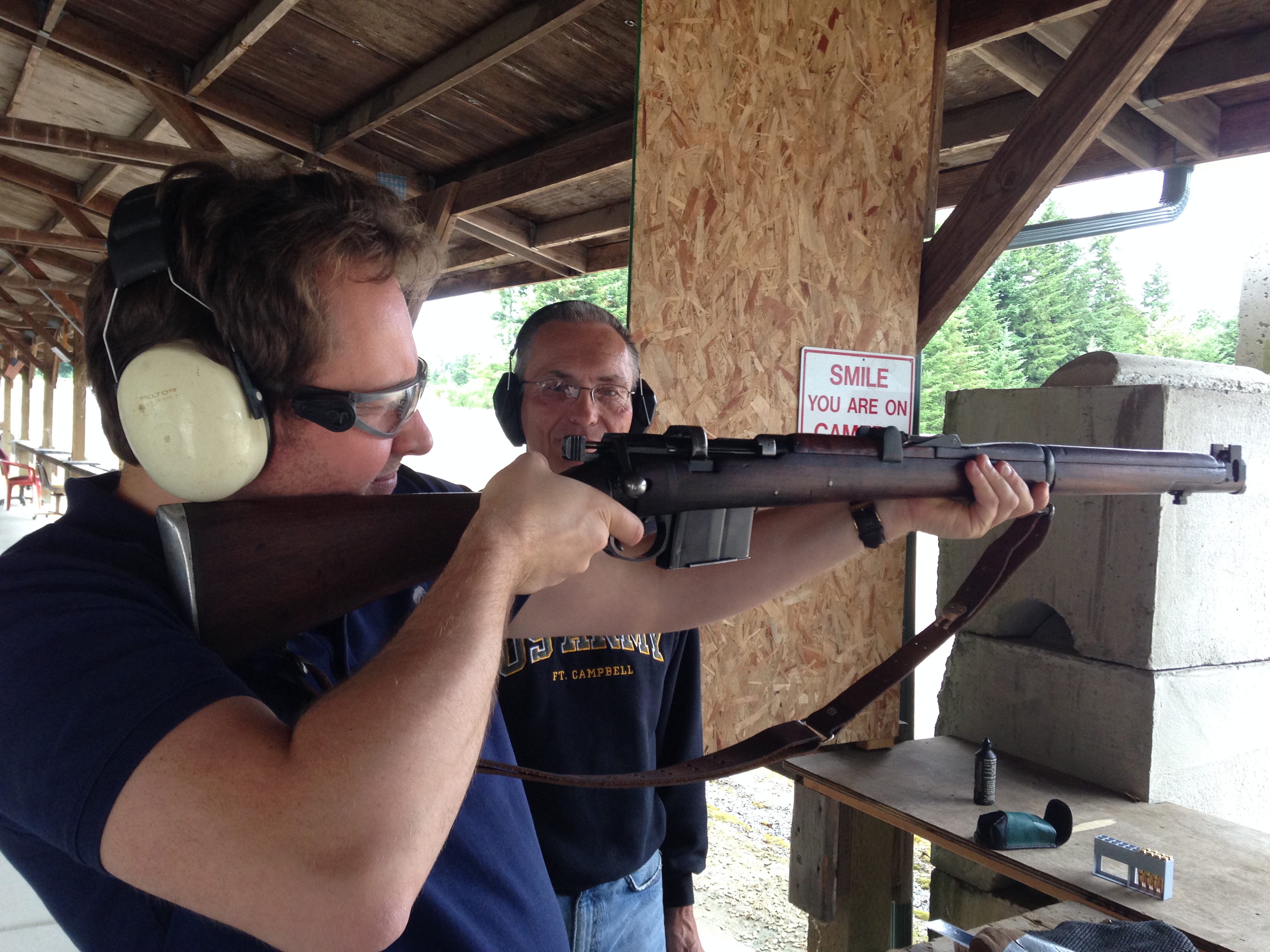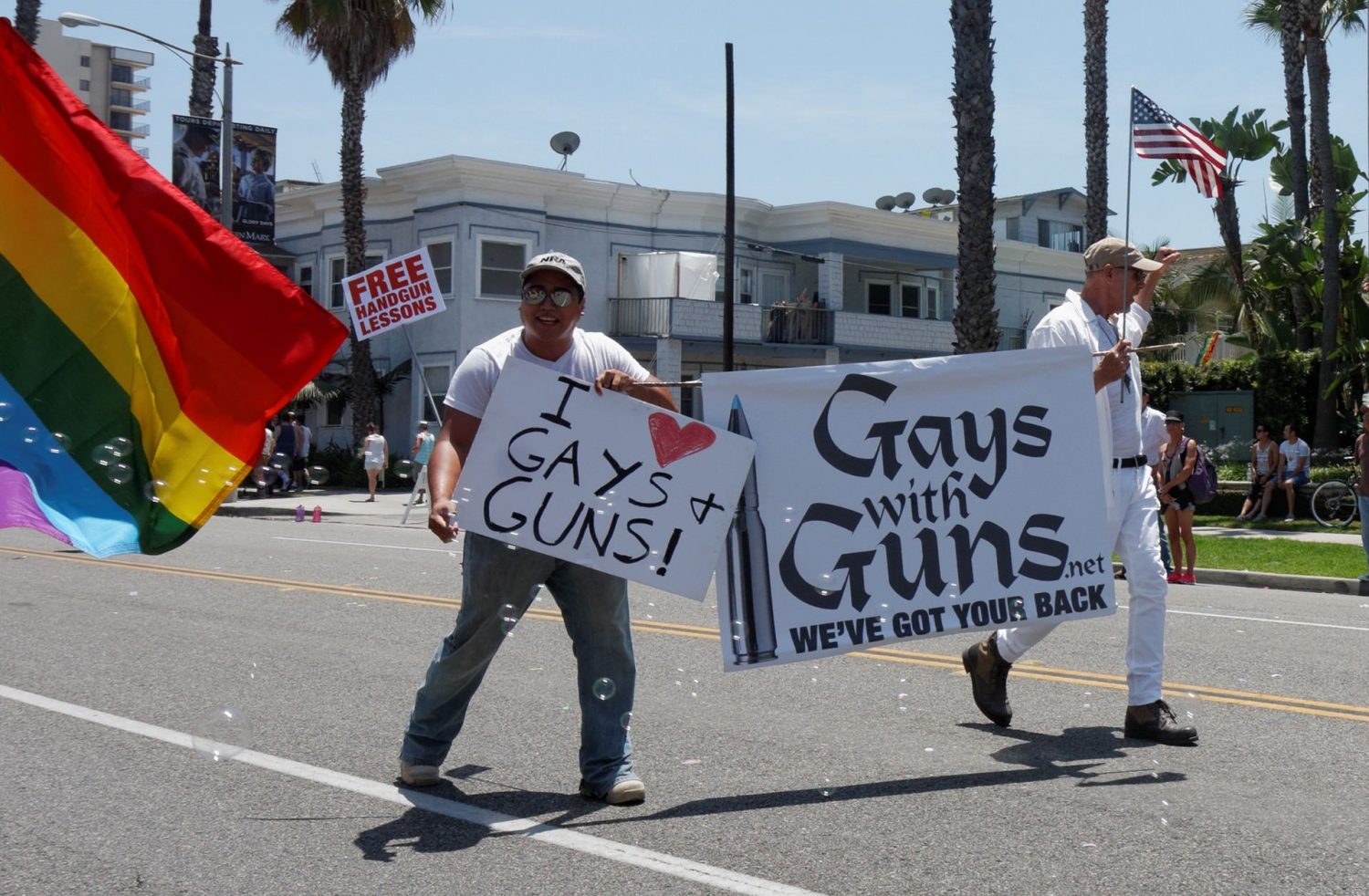Last month, I did something I’d done only once before: I went to a range and shot some guns. Lots of guns. All shapes, ages and sizes.
This is a very strange thing to do for a guy born British. Guns feature nowhere in British culture.

Accordingly, I was unsurprised by the reaction of my mother when I called home and told her that I’d had a great time learning about firearms and discovering I wasn’t a bad shot, even with a second-world-war Enfield. “That’s the last thing I’d ever imagine you’d enjoy doing,” she said to me. She wasn’t being judgmental: it was an expression of genuine surprise.
“That’s because you just can’t imagine why nice or normal people would enjoy guns … because you don’t know any… no Brits know any,” I replied.
Mom thoughtfully agreed.
Many decent people who have no interest in guns simply can’t imagine what it must be like to be someone who is passionate about something whose primary purpose is to kill people. Although the gun debate is waged using words, logic and fact (to different ends by both sides of course), the arguments constructed using these three tools are not what brings people to their pro or anti-gun position. Rather, most people are emotionally or intuitively committed to a position first, and deploy these tools retroactively in defense of their position. Despite what we like to think, we most, if not all, of our political views this way. Studies show, time and time again, that David Hume was right, when claimed,
<blockquote>And as reasoning is not the source, whence either disputant derives his tenets; it is in vain to expect that any logic, which speaks not to the affections, will ever engage him to embrace sounder principles.</blockquote>
What most anti-gun people are really feeling (rather than thinking) is that there has to be something strange about you if you like guns. I mean, why would you get turned on by something whose primary purpose is to kill people? If you do, you can’t be like me. You are sufficiently different that I am suspicious or your worldview or your motives or both. You are culturally “other”.
Productive engagement, and the pervasive acceptance of individual rights, involves bridging such cultural gaps. With the gun-rights issue, as with all others, the best way to do so is the same way all forms of cultural segregation (because that is what we are really talking about) have been permanently broken down over time: to get to know, and spend personal time with, those on the other side of the gap.
It works both ways. People who favor more gun regulation are not actually motivated by taking away your liberty. And people who favor robust 2nd amendment protections do not have a lower threshold for the acceptance of violence or aggression. You’ll know this when you have them as friends, and having such friends causes the all-or-nothing arguments that make such dramatic claims about the fundamental differences between you and the people on the other side of the issue to cease to be credible.
This mistaking of differences of cultural identity for political differences or, the erroneous idea that political differences drive different cultural identities, rather than the other way around</a>, severely hobbles our ability to protect all of our liberties and empowers political partisans who have a vested interest in maintaining power by keeping us insolubly divided.
Just as gun-owners form a kind of (albeit highly porous) sub-culture, the LGBT community does so too. Some people who have been brought up in a socially conservative or religious sub-culture simply can’t imagine being able to do (let alone actually doing) the things that those in another (LBGT) do as a matter of course. Again, if I can’t even imagine your experience or desires, then we are deeply culturally separated. Just as gun-control advocates feel a twinge of disgust, or at least, condescension, toward the culture of gun-owners, some of our religious friends feel similarly about the LBGT sub-culture. “Disgust” is of course a very strong word, and most of us sublimate it deeply, but it captures the sense that the division among our “political” sub-cultures is more visceral than rational. Reason is applied later to justify in the conscious mind the position that the subconscious makes us emotionally comfortable with.
Now, I have a distinctly conservative streak when it comes to the raising of children, and I have an instinctive respect for any political position that is genuinely motivated by requiring adults to do the best by the children whom they create. I can understand, then, the real discomfort of those who sincerely believe that children benefit from having male and female role-models at home, and that society should be very wary of sanctioning anything that does not place the well-being of children above the proclivities of their parents.
However, two of my friends – and two of the kindest and most responsible people I know – happen to be gay partners who adopted a(n American-born) daughter. Phil and Michael are giving their adopted daughter a wonderful life. Their love for her is boundless. The security, values and richness of experience that they are providing her will set her up forever. And the gap between the life that Mia Joy has and that which she would otherwise have had makes the general question, “should gay couples should be able to adopt,” sound something between silly and faintly insulting when applied to this particular, inspiring case.
I am blessed with close gay friends with whom I identify as much as I do with many of my straight friends. So for me, the question of gay marriage and adoption, for example, is not so much a political argument that needs logically “deciding”; rather, the very intuition of the existence of some gay “other” on which the very argument depends, has disappeared. As that cultural gap is bridged through actual human relationship, the separateness of that “other group”, on which any suspicion I may have of their motivations depends, ceases to exist.
I’ve had many gay friends for many years. And now I am getting some gun-owning friends too. And because they are all good people (they’d not be my friends otherwise, would they?), I see both groups as doing essentially the same thing when they defend their rights – insisting on being allowed to be themselves, and defend the validity of the way they experience the world – as long as they harm no one else.
Of course, if you’re reading this and you don’t like guns, you’re thinking, “That’s wrong. Guns harm people.” Not in the hands of my friends, they don’t. And if you’re reading this and you don’t like gays, you’re thinking, “That’s wrong. Gay adoption is bad for the children.” Not by my friends, it isn’t.
If I were going to take a stand against gay adoption, I would have to imagine saying to Phil and Mike, “You should not be allowed to what you have done for Mia Joy, and I would use the force of law to stop you.” Even if I could make an abstract political argument against gay adoption, I cannot say that to them in good conscience. And if I were going to take a stand against my open-carrying friend, Rob, I’d have to imagine saying to him, “You should not be allowed to own that to protect your family – or to protect your country against a tyrannical state, should it ever come to that, and I would use the force of law to stop you”. Even if I could make an abstract political argument against private gun ownership, I could not say that to him in good conscience.
By becoming friends with Phil and Mike, and with Rob, their respective sub-cultures cease to be alien to me.
The truth is that, because I know Rob as a grounded, kind man, I also know that the rest of us are better off when people like him have a few of the guns – rather than their all being in the hands of our political masters. And because I know Phil and Michael as being rather like Rob in those respects, I simply know that the rest of us are better off when people like them have a few of America’s children.
And there’s not a political argument in sight.
You’ll appreciate my delight, then, when, during my day at the range with Rob, he told me that his local organization in defense of the second amendment accepted the open offer made by the organizers of his city’s annual gay pride event to support them by marching with them. The two groups have now formed an ongoing alliance, reflecting the fact, of course, that they are really doing the same thing: protecting the right of people to do anything they want for people they love as long as they harm no one else.
That’s when you know that you <em>really </em>care about liberty: the excitement of marching in support of someone who wants to protect and celebrate their freedom overcomes your “cultural discomfort” (should you have any) with what they want to do with it.
If we can challenge ourselves by focusing as much on nurturing our human connection with our political opponents by relating to them as people, we’d discover a wonderful paradox: we’d all feel, from our opposed initial positions, increased success in getting our opponents to see the world our way.
How is that possible?
It’s possible because collapsing the sub-cultural divides in our society through actual human relationship does something bigger and better than resolving our political differences: it dissolves them. It dissolves them because it reveals that much of what we thought were differences of political principle are really rationalizations of the suspicion we feel toward those whose experiences and pleasures we simply cannot imagine sharing.
As in history, so in psychology: culture precedes politics.
